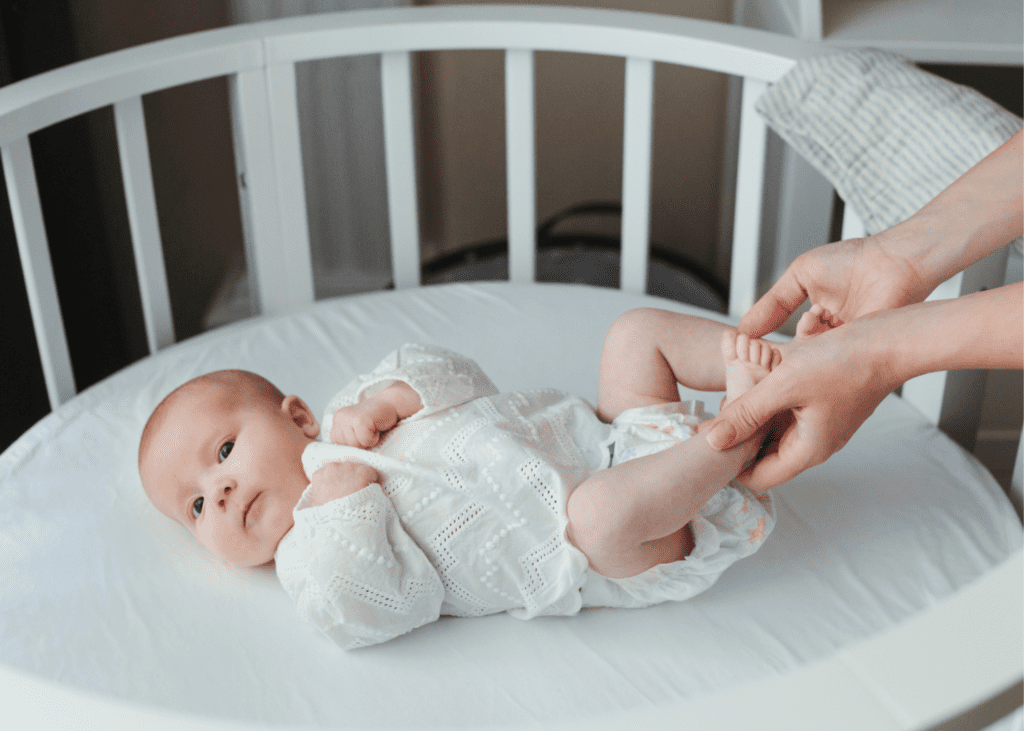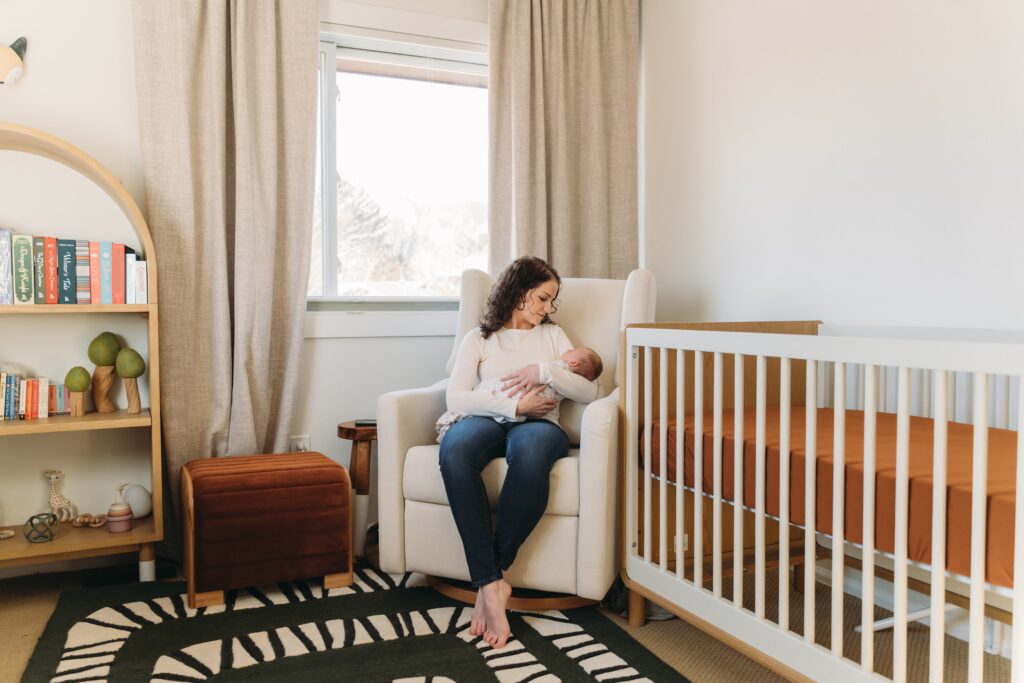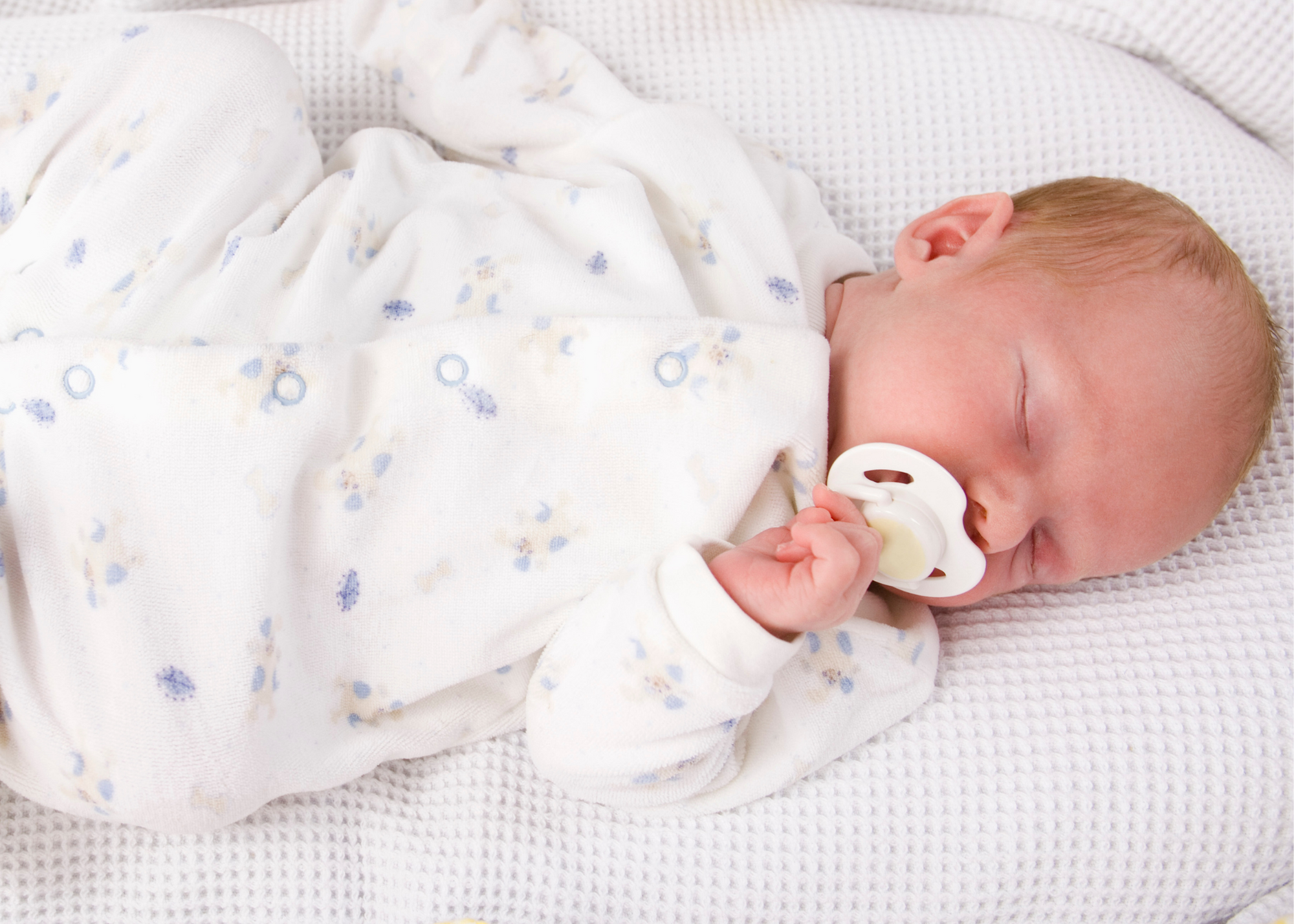You have decided to sleep train your baby, but now they are sick… What comes next? Sick babies can certainly complicate the sleep training process. As parents, we still want to keep up with and not lose progress with sleep training, but we also want to comfort our babies when they aren’t feeling well. While these two are not mutually exclusive, there are a few things you need to know when sleep training a sick baby.
Before we get started, let’s get rid of the idea that whatever is working right now with sleep will work forever. Even without illness interfering, your child’s life will involve constantly changing routines as they reach new developmental milestones. Illness and travel are just two of the many outside factors that can affect your baby’s sleep.
It is also important to remember that once you have laid the foundation for good sleep hygiene and independent sleep skills, thankfully any interruption to their sleep will only be temporary.
How to Sleep Train a Sick Baby
When your child is ill, sleep can help them heal and recover faster. It probably makes sense that they will need some extra sleep, but how much? You will want to follow their lead for their sleep needs. This may look like letting them sleep later in the morning and taking longer naps, allowing them to wake up naturally when they are ready. You can also take a proactive approach and start your bedtime routine earlier. This helps you to lay them down sooner, allowing extra time for snuggles as well as giving them a chance to fall asleep earlier than usual.
During sickness, children feel uncomfortable and tend to fuss and “complain” more about everything they need to do, including going to sleep. Lucky for you, this does not mean they are incapable of self-soothing or falling asleep on their own!
So do what you can to ease their discomfort by following your pediatrician’s recommendations for managing their symptoms, but don’t be afraid to put them down as usual. Sticking to your usual routine as much as possible is very comforting to your baby. Your baby may take longer to settle than they normally would, but most of the time they still manage to fall asleep independently.

Can Teething Affect Sleep Training?
You may be surprised to know that teething is unlikely to cause periods of poor sleep for your baby. It can be easy to assume that teething is causing your baby excruciating pain, leading to them staying up all night or waking more frequently than usual, but the truth is that there are no systemic symptoms that can be caused by the teething process. Most “teething” periods last only 8 days, with a tooth appearing around day 5. Also, any symptoms that do appear with teething are typically mild, and not likely to impact sleep more than about a day or so beyond the day the tooth erupts.
If your child is having any symptoms that are persistent or severe, it is more likely a sign of illness and you should consult with your pediatrician. If sleep is being disrupted for several days or even weeks at a time, I’m sorry to tell you that’s not teething. There is likely an alternative cause, and most likely it’s a sign you need to try tweaking their schedule.

What You Need to Remember About Sleep Training a Sick Baby…
Ultimately, you know your baby best and it is your call whether or not to continue with your independent sleep routines. So whether you’ve already sleep trained your baby or you’re in the middle of sleep training, if your instincts are telling you that they need a little extra help, that’s okay! Just keep in mind that you may need to put in a bit of extra effort once the illness has resolved in order to get back to your regular routine.
When you are sleep training a sick baby, the key is to stay consistent. Don’t completely abandon the habits and routines that you have been implementing so far. Keep what you can even if some things need to be modified. This is only a temporary change to your baby’s sleep!
Also, don’t anticipate sleep disruptions! This means don’t expect that your baby’s sleep will worsen just because they had a tooth emerge or because they just started walking or because your mom group warned you about the “8-month sleep regression.”
When you expect sleep to go badly, it creates a self-fulfilling prophecy. With that expectation, parents often read too much into the one-off night that could have just been a fluke, or are more likely to change things when they didn’t need to. These changes can unfortunately get you even further away from the good sleep you were used to!
Also, even if there are disruptions to your child’s sleep, don’t expect to have to completely re-sleep train! Returning to the habits and routines you had already established is a far easier and faster process than having to establish them in the first place. But if parents think they are going to have to re-train anyways, it can be a similar self-fulfilling prophecy. They stop implementing their regular routine altogether, or maybe they start holding the baby to sleep or offering middle of the night feeds again. Unfortunately, this creates new sleep associations that then parents will have to break later.
So after any disruption has passed, try going right back to your original sleep schedule, bedtime/naptime routine, etc. Use whatever sleep training method you used initially to respond when your baby cries when being put down or wakes overnight or in the middle of a nap. It will likely only take a day or two to get back into your regular groove. However, give your baby a few days to a week of being really consistent to give them enough of an opportunity to get back into their normal routine before worrying that something is no longer working or trying to switch things up.
Are you struggling to get your baby’s schedule back on track after an illness? Or worried you can’t start sleep training because your baby gets sick so often?
Check out my Sleeping Baby, Sane Momma program for motivated mommas ready to break through any obstacles keeping their family from getting the rest they need – you’ll get one-on-one support so you can successfully sleep train even in the midst of illness or after an illness has thrown everything so out of wack that you don’t know where to start!
Leave a Reply
Contact
THANK YOU!
We received your information and we will be in touch soon. Please allow 48 hours response time.
